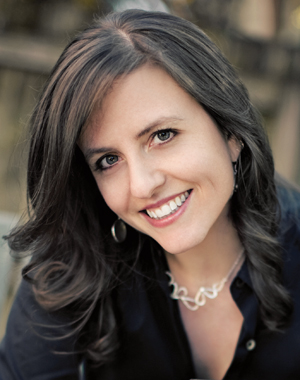‘UCSB Reads’ Picks “The Immortal Life of Henrietta Lacks”
Rebecca Skloot's Turns Real-Life Medical Research into Gripping Narrative Non-Fiction
To her family and friends, she was Henrietta Lacks. To scientists, however, she is HeLa, the first “immortal” human cell line. A poor Southern tobacco farmer who worked the same land as her slave ancestors, Lacks has become the forgotten woman behind one of the most important tools in modern medicine.

In her book The Immortal Life of Henrietta Lacks, award-winning author Rebecca Skloot tells the story of the HeLa cell line, Lacks, and her descendants, many of whom feel betrayed by the scientific establishment. The UC Santa Barbara Library has chosen the book as this year’s selection for UCSB Reads.
An annual winter quarter event, UCSB Reads engages the campus and the Santa Barbara community in conversations about a key topic while reading the same book. The theme for 2011 is “Our Bodies, Our Cells: Exploring Identity.”
Beginning at noon on January 6, the UCSB Library will give away over 2,000 free copies of the book to registered UCSB students. In addition, the library will be giving away 100 eBook copies of the title. They will be free to UCSB students, faculty, and staff members, and can be read on a number of electronic devices, including the Kindle, iPad, iPhone, BlackBerry, Android, Macintosh, and PC. The deadline to register for an eBook copy is January 3, and registration can be completed online here .
The book will also be available at the UCSB Bookstore. The Antioch University Library, the Luria Library at Santa Barbara City College, the Westmont College Library, and local high schools are also partners in the program, and the book is a Santa Barbara Public Library System “Read” selection for this winter. Extra copies will be available for loan throughout Santa Barbara County. Other partners include Cottage Health System and Sansum Clinic.
A variety of free campus and community events and discussions about the book will take place throughout winter quarter in public libraries and at UCSB. Among these are a series of Community Conversations, which will feature UCSB faculty members discussing topics of genetic knowledge, identity, and individual rights. In addition, a presentation by the author is scheduled for Monday, April 11, in Campbell Hall.
With The Immortal Life of Henrietta Lacks, Skloot weaves together the Lacks story – and that of her descendants – with the story of the first culturing of HeLa cells, the dark history of experimentation on African Americans, and the birth of bioethics.
In 1951, Lacks had developed a strangely aggressive cancer, and doctors at Johns Hopkins Hospital took a tissue sample without her knowledge. She died without knowing that her cells would become “immortal” – the first to grow and survive indefinitely in culture. HeLa cells were essential to developing the polio vaccine, and have aided in the development of in-vitro fertilization, cloning, and gene mapping. They also have contributed to a better understanding of the workings of cancer and innumerable viruses. Even today, HeLa is the most widely used cell line in labs worldwide, bought and sold by the billions.
After learning about the HeLa cell line in high school, Skloot became consumed by curiosity about the woman behind the cells. During the decade it took her to chronicle this remarkable story, she journeyed from state-of-the-art scientific laboratories to the tobacco fields of southern Virginia to East Baltimore, where the Lacks family lives today. She spent years winning the trust of Henrietta’s daughter, Deborah, who longed to know more about her mother and to better understand the science behind her cells.
Skloot also tells of Lacks’s husband and children, who did not find out about her “immortality,” or the enormous profits her cells had generated, until more than 20 years after her death, when scientists investigating HeLa began using blood samples from her family in research without informed consent. The family had grown up surrounded by preaching, faith healing, and voodoo; suddenly, they were plunged into a world of arcane-sounding science, and wrestled with feelings of pride, betrayal, and fear. While biotech companies had made millions selling HeLa, many of Henrietta Lacks’s descendants could not even afford health insurance.
For information about UCSB Reads, contact Brian Mathews, assistant university librarian, at bmathews@library.ucsb.edu or (805) 893-2674. A complete list of upcoming UCSB Reads activities is available online.
